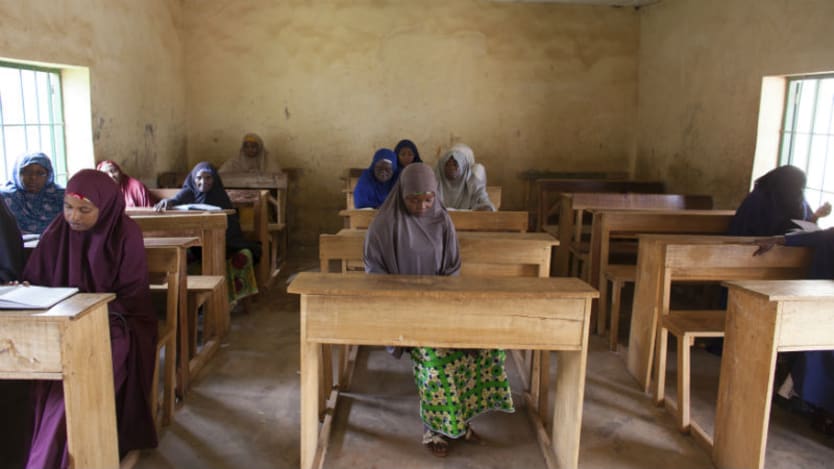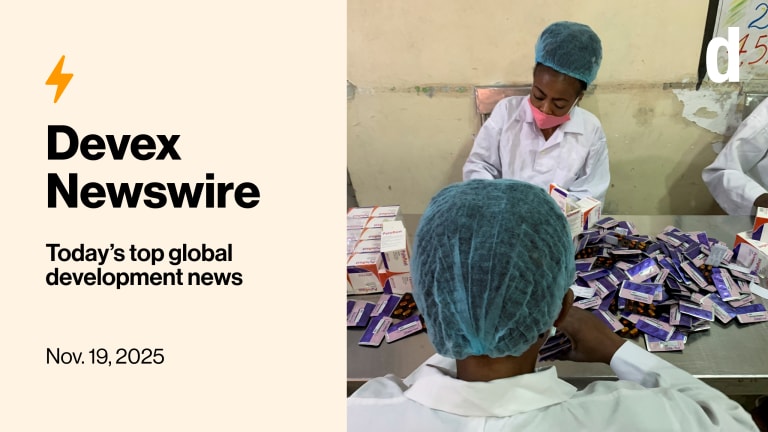
The foundation was recently laid for the Sustainable Development Goals data laboratory in Kaduna state, northwest Nigeria. Named after United Nations Deputy Secretary-General Amina Mohammed and with funding provided by the Bill & Melinda Gates Foundation, this project’s symbolism goes beyond the building and the computing systems it is expected to house in a couple of months.
It is indicative of Kaduna state’s approach and commitment to putting the SDGs into action. In short: data first.
Kaduna state has doubled the enrollment number in schools — 1.1 million students to 2.1 million students — over the past 4 years.
— annual school census, covered by EduCelebThat Kaduna, one of the large states in Nigeria’s underdeveloped north, is fraught with negative indicators surprises no one. However, no one could clearly enumerate the scope of the problem as a result of a data glut.
Investments in establishing Nigeria’s statistical system became the utmost priority of our newly formed government in 2015, the same year the SDGs became a thing. Kaduna had enacted a statistics agency law two years before then but a wide gap existed in terms of the capacity of the agency to function. Also, there was a lack of institutional recognition for the role of data in planning and monitoring in the government. The state had to rely on generic data provided by the National Bureau of Statistics.
With the government’s new data drive, a number of reports were generated including two general household surveys, two annual school censuses, two state gross domestic product surveys, a population dynamics survey, and an agriculture structure survey, among others. The data gathered would form the basis for the state to develop action plans linked to the 17 global goals.
This data revolution saw Kaduna state becoming one of the first subnational governments in the world to have conducted a robust analysis of local SDG data and strategy for implementation. The presentation of this report was made during the 2017 U.N. General Assembly in New York.
But data generated in itself does not constitute an outcome. For us, data has been at the center of our policy formulation and decision-making. A case in point is the issue of providing quality education, where our administration has made a significant mark. Worthy of note is that the state has, within the past four years, managed to double the enrollment of its citizens in schools from around 1.1 million students to 2.1 million students.
According to NBS data captured in 2014, shortly before we took office, Kaduna state had about 4,225 public primary schools with an enrolment of about 1.1 million students. It is important to point out that there were almost 200 more schools in 2014 compared to the previous year but enrolment had fallen. With the school census conducted, we understood the state of the schools.
Among other findings, it was observed that as much as half of the student population received instruction under the most basic circumstances.
Classrooms were packed and the schools lacked basic amenities such as clean water and sanitation systems. However, understanding how limited funds would be best utilized was based on the analysis of demographic trends data that saw us build more multistorey school blocks to create more classrooms and bring down the student-teacher ratio to about 1 teacher to every 30-40 students. We owe the achievements to solid data.
Pushed by findings from the health census, the state is making investments in 255 primary health centers with a goal to reduce maternal and child mortality by at least 50 percent.
There are no current official figures for maternal and child mortality in Nigeria, usually provided by the demographic health survey. However, there has been an increase in the uptake of immunization according to local data. About 64.9 percent of children under 5 received the tuberculosis vaccine in 2017, which represents an increase from 54.2 percent recorded in 2015.
Likewise, knowledge from our GDP and agriculture surveys have provided key inputs for our industrialization, growth, and poverty eradication strategies and the same could be said for almost every other SDG indicator that our government has been tracking and implementing.
With a strong commitment to openness and citizen engagement, the government has provided access to all data on a public platform through the statistical agency’s website.
For us to achieve the SDGs, conventional methods have to give way to a new way of doing things. Data should not be consumed linearly, it has to be aggregated and processed in a manner that can inform policy choices and decisions in order to make progress.
With new technologies and tools in artificial intelligence and machine learning, the potential for the world to achieve the SDGs is greater than it has ever been. Kaduna is a developing success story.








